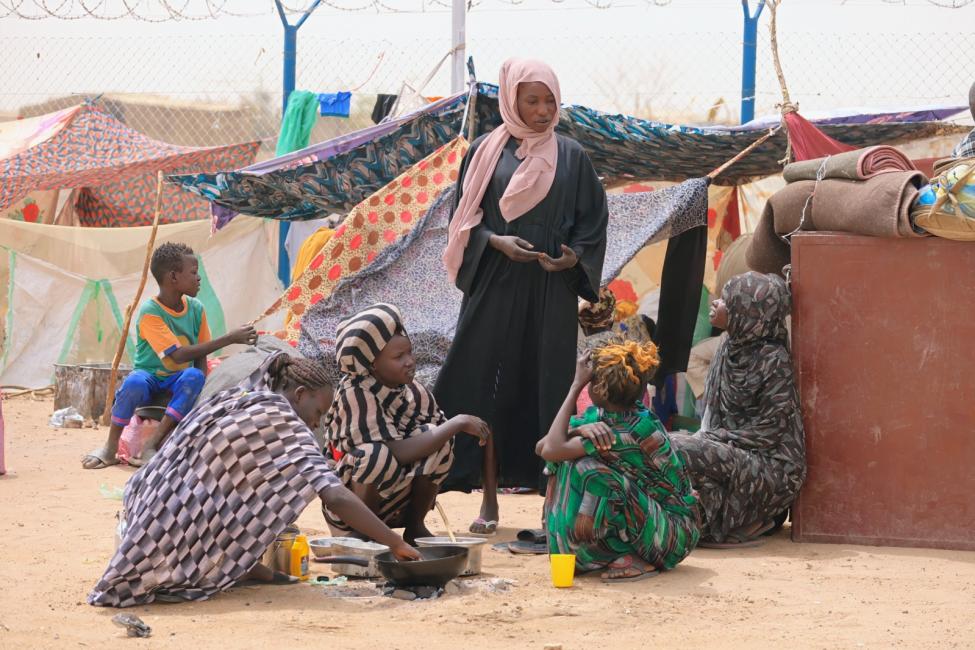Qatar pledges an additional $25 million to support Sudan at an international donor conference marking one year since the war’s outbreak.
Qatar pledged an additional $25 million to support Sudan on Monday, contributing to $2.13 billion raised at an international donor conference in Paris on the one-year mark of the brutal war.
Representing Qatar at the conference, Minister of State for International Cooperation at the Ministry of Foreign Affairs Lolwah Al Khater announced the new donation. This followed last year’s pledge of $50 million, aimed at supporting humanitarian efforts in Sudan.
Contributions from Qatar Charity and Qatar Red Crescent Society also exceeded $11 million since the war broke out on April 15, 2023.
The war erupted between Rapid Support Forces (RSF), commanded by Mohammed Hamdan Daglo, widely known as Hemedti, and Sudan’s army, led by Abdel Fattah Al Burhan following a period of simmering tensions.
One year on, the war displaced 8.6 million people, making it one of the biggest displacement crises since the Second World War II, according to the United Nations.
The war killed at least 15,000 people in Sudan, though the figure is likely higher as local institutions have not been able to keep up with the casualties.
At least 25 million people in Sudan, more than half of its total population, need humanitarian assistance.
During her speech at the conference in France, Al Khater stressed that Sudan is facing “one of the harshest contemporary humanitarian tragedies.”
The Qatari official also listed principles needed to support Sudan, starting with preserving the country’s sovereignty, unity, territorial integrity, and institutions.
“She stressed that the second principle is to achieve the interest of the fraternal Sudanese people, which begins by sparing their blood, restoring their security in their homeland, providing for their needs, and working to achieve the legitimate aspirations of its people in their homeland,” Al Khater said, as cited by Qatar’s foreign ministry.
The third principle she listed pertained to stopping external interference that fueled the crisis and continued to “contribute to igniting fires instead of extinguishing them.”
“The solution to the Sudanese crisis would not be through perpetuating the current situation under any pretext and simply supporting refugees in Sudan’s neighbouring countries as if the international community is contributing directly and indirectly to consolidating the current situation,” Al Khater added.
Al Khater personally travelled to Sudan in March and marked the resumption of the humanitarian air bridge to the war-torn country. Al Khater visited Port Sudan where aid is offloaded and displaced Sudanese have been sheltering since the deadly war broke out.
Qatar has sent a total of 17 planes carrying 530 tonnes of aid to the war-torn country since it first launched the air bridge in May 2023.
A ‘forgotten crisis’
Addressing the meeting in Paris, Al Khater reiterated the need to return the crisis in Sudan to the international agenda and prioritise it among the international community.
Amy Pope, Director General of the UN’s International Organization for Migration, said on Monday “that the world often reacts to crises far too late.”
“Without financial support from countries all over the world, the needs in Sudan are only going to deepen and be more costly,” Pope said in a statement.
UN Secretary-General Antonio Guterres also noted that “the world is forgetting about the people of Sudan.”
“Half of the country’s population needs life-saving assistance. But they need more than humanitarian support. They need an end to the bloodshed. They need peace. The only path out of this horror is a political solution,” he said.
During the conference in Paris, the European Union pledged $371.5 million (€350) whereas the United States pledged $147 million and the United Kingdom $110 million. In total, the conference raised $2.13 billion.
Speaking at the event, French President Emmanuel Macron noted that the amount raised is likely “less than was mobilised by several powers since the start of the war to help one or the other side kill each other.”
The RSF has been accused of looting aid and breaking into civilians’ homes. The war in Sudan continued despite numerous diplomatic efforts that attempted to halt it, including a joint US-Saudi Arabia initiative.
On Saturday, local activists reported that 40,000 people were forced to flee Al-Fashir after the RSF and its allied militias set fire to villages near the area, killing at least 11 people.
The United Arab Emirates is widely seen as a backer of the RSF, something that it repeatedly denied.
An Emirati official told the Financial Times on January 24 that Abu Dhabi “does not take sides in the current conflict.”
The RSF also committed crimes in Darfur, which faced a genocide in 2003. At the time, the RSF’s commander, Hemedti, led the Janjaweed militia.
At least 300,000 people were killed and 2.7 million were displaced during the genocide.







